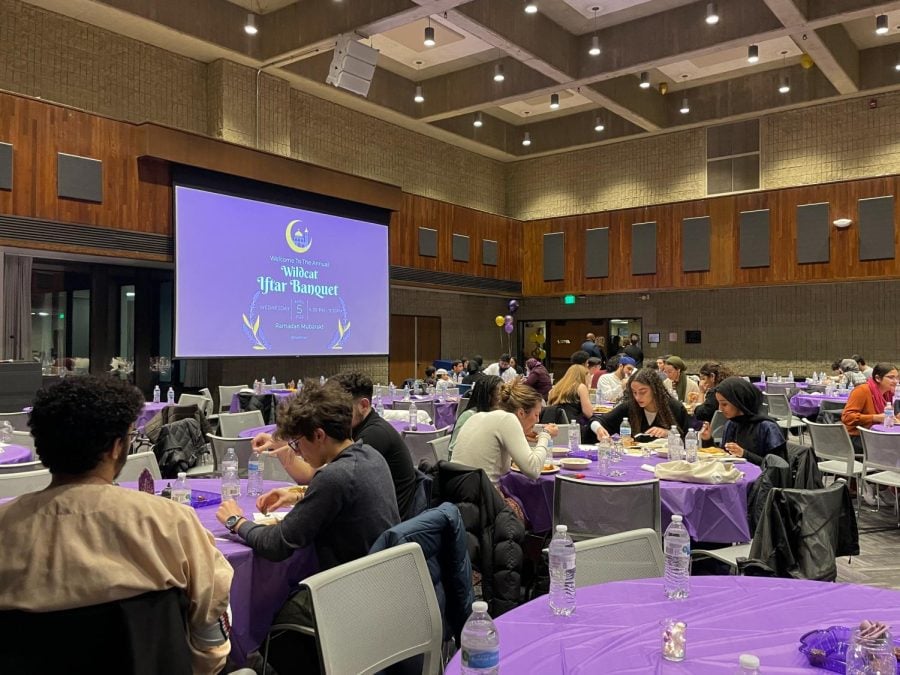Muslim-cultural Students Association hosts Wildcat Community Iftar Banquet to celebrate Ramadan
Divya Bhardwaj/Daily Senior Staffer
The Louis Room at Norris University Center. Muslim and non-Muslim students came together to celebrate Ramadan at the Muslim-cultural Students Association’s Iftar Banquet.
April 6, 2023
Students, faculty and staff gathered for a community Iftar in Norris University Center’s Louis Room, hosted by Northwestern’s Muslim-cultural Students Association on Wednesday night.
Many Muslims observe the holy month of Ramadan by abstaining from food and drink each day, beginning at sunrise and ending with the fast-breaking meal called Iftar at sunset. Ramadan began on the evening of March 22 and will continue until April 21 or April 22, depending on the timing of the new crescent moon. In Evanston, the fast currently lasts about 13 hours.
“This is a time where people are able to gain a deeper understanding and reflection of what Ramadan means for people on campus,” said McCormick freshman Umar Kamara, McSA’s Associated Student Government senator.
McSA’s banquet — open to any member of the NU community, Muslim or non-Muslim — marks the organization’s largest event of the year, with more than 300 people who RSVPed.
Weinberg sophomore Ayman Hayat, an McSA co-president, opened the event with Kamara. He emphasized the importance of community, while Director of Interfaith Engagement and Associate University Chaplain Tahera Ahmad spoke of the observance’s significance.
“We, as the Muslim community, go through a trial period of different types of struggles — one of them is fasting,” Ahmad said. “The idea is that we come out on the other end of Ramadan a little bit better than where we had started.”
McSA hosts multiple events throughout the month, including daily Iftars in Foster-Walker Complex and Friday Halaqahs — a way for students to study Islam — for those who observe Ramadan.
“When you’re here and away from family, it’s nice to have a community and break fast together,” said Kellogg first-year student Minaz Munshi.
Wednesday’s event and an upcoming Eid al-Fitr banquet provide an opportunity for non-Muslims to participate and learn about Ramadan, according to McSA’s Instagram.
Weinberg sophomore Hebah Alshaikh said she was excited to see the broader community come together Wednesday night.
“I invited some people who don’t really know that much about Islam, so hopefully they’ll get a sense of why we fast,” Alshaikh said. “Even if they just take away one thing, it helps spread awareness.”
Describing NU as a “fast-paced, rigorous academic environment,” Kamara said students can find it difficult to make time for socializing.
Kamara said Ramadan, however, is a time to build networks of support. During his speech, he asked audience members to indicate if they had met or bonded more with a new friend since the start of Ramadan. Many people raised their hands.
“In the month of Ramadan, every Muslim student on campus says, ‘You know what? That lab report and 90-page reading can wait until tomorrow,’” Kamara said. “Muslims of different backgrounds, cultures and beliefs put the time to meet this month — to eat together, pray together, learn together and form new bonds and friendships that last beyond the month of Ramadan.”
Email: [email protected]
Related Stories:
— Community members celebrate Ramadan in Muslim-cultural Students Association event












